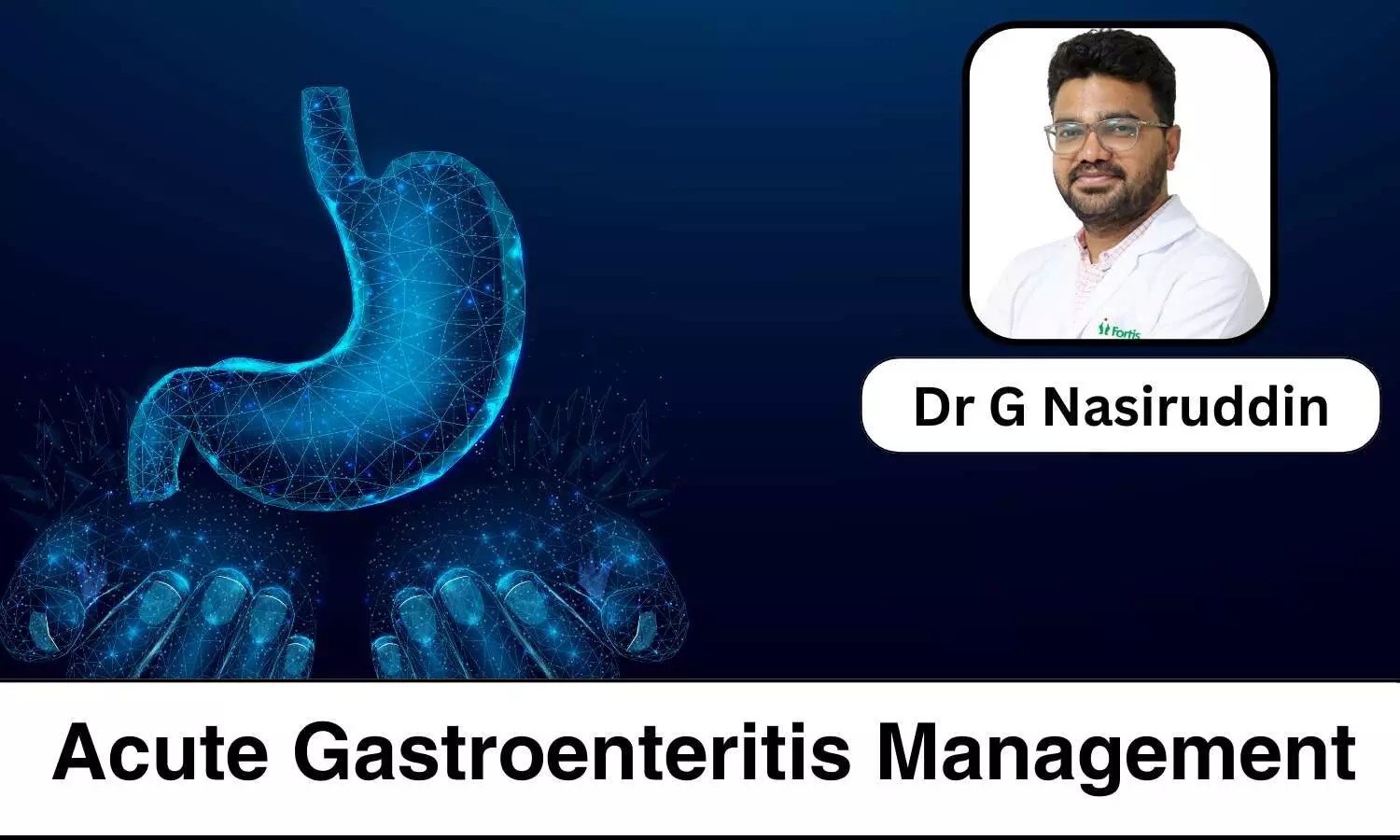Demystifying Acute Gastroenteritis: Causes, Symptoms, and Management - Dr G Nasiruddin

Acute gastroenteritis, often referred to as the "stomach flu" although not caused by influenza viruses, is a common and unpleasant illness affecting millions worldwide each year. It's characterized by inflammation of the gastrointestinal (GI) tract, primarily the stomach and intestines, leading to a range of uncomfortable symptoms. While typically short-lived and resolving within a few days, it can be debilitating and require proper management to prevent complications, especially in vulnerable populations like children and the elderly.
Causes of Acute Gastroenteritis
Several agents can trigger acute gastroenteritis, with the most common culprits being:
- Viruses: Rotavirus, norovirus, and adenovirus are the leading viral culprits, particularly in children. These viruses spread through contaminated food or water, close contact with an infected person, or fecal-oral transmission.
- Bacteria: Escherichia coli (E. coli), Salmonella, and Campylobacter are frequent bacterial offenders. Contaminated food, undercooked meat, and improper hygiene practices contribute to their spread.
- Parasites: Giardia lamblia, a microscopic parasite, can contaminate water sources and cause gastroenteritis, especially during travel to regions with poor sanitation.
Less frequent causes include:
- Food intolerance: Lactose intolerance or sensitivity to certain foods can mimic gastroenteritis symptoms.
- Medications: Some antibiotics and anti-inflammatory drugs can irritate the GI tract and cause stomach upset.
- Toxins: Ingestion of toxins, either from certain plants or seafood, can trigger acute gastroenteritis.
Symptoms of Acute Gastroenteritis
The hallmark symptoms of acute gastroenteritis are:
- Diarrhea: Loose, watery stools occurring frequently.
- Vomiting: Nausea and expulsion of stomach contents.
- Abdominal cramps: Painful contractions in the abdomen.
These core symptoms may be accompanied by:
- Loss of appetite: Feeling uninterested in food.
- Fever: A rise in body temperature, often mild.
- Malaise: A general feeling of weakness and fatigue.
- Dehydration: Loss of fluids and electrolytes due to diarrhea and vomiting.
The severity and duration of symptoms can vary depending on the causative agent, the individual's immune system, and age. For instance, rotavirus infection often presents with severe diarrhea in young children, while norovirus might cause more prominent vomiting in adults.
When to Seek Medical Attention
Acute gastroenteritis is usually self-limiting, meaning it resolves on its own within a few days. However, it's crucial to seek medical attention promptly if you experience:
- Severe or persistent diarrhea: Blood in stool or diarrhea lasting for more than three days can indicate a more serious condition.
- Uncontrollable vomiting: Inability to keep fluids down necessitates medical intervention to prevent dehydration.
- Signs of severe dehydration: These include extreme thirst, dry mouth, dizziness, decreased urination, or sunken eyes, particularly in infants and older adults.
- High fever: A fever exceeding 102°F (38.9°C) could point towards a bacterial infection requiring antibiotics.
Management of Acute Gastroenteritis
There's no specific cure for viral or bacterial gastroenteritis. Treatment focuses on managing symptoms and preventing dehydration. Here's how to combat the discomfort:
- Hydration is Key: Replenish lost fluids and electrolytes with oral rehydration solutions (ORS) readily available at pharmacies. Homemade solutions using water, sugar, and salt can also be effective. Avoid sugary drinks, soda, or fruit juices, as they can worsen diarrhea.
- Dietary Modifications: Opt for a bland diet consisting of easily digestible foods like BRAT (bananas, rice, applesauce, and toast). Gradually reintroduce other foods as symptoms improve.
- Rest and Relaxation: The body needs energy to fight the infection. Get plenty of rest and avoid strenuous activities.
In severe cases with significant dehydration or bacterial infection, intravenous fluids and antibiotics might be necessary in a hospital setting.
Strategies to Avoid Acute Gastroenteritis
Several practices can significantly reduce your risk of contracting acute gastroenteritis:
- Frequent Handwashing: Wash your hands thoroughly with soap and water after using the toilet, changing diapers, handling raw food, or being in public places.
- Food Safety: Practice safe food handling techniques. Wash fruits and vegetables thoroughly, cook meat to proper internal temperatures, and avoid consuming under cooked foods.
If you have underlying medical conditions or a weakened immune system, consulting a doctor is advisable even with mild symptoms, as you might be more susceptible to complications.


